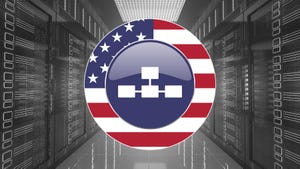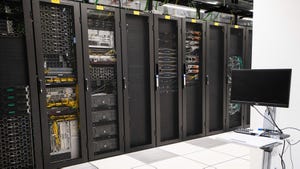Behind Maryland’s Push to Encourage New Data Center DevelopmentsBehind Maryland’s Push to Encourage New Data Center Developments
The recently signed Critical Infrastructure Streamlining Act will make the state of Maryland more competitive as an alternative to North Virginia, experts claim.

The state of Maryland recently passed new legislation designed to make it easier for developers of data centers to install backup generators, which in turn will encourage the development of new data centers in the state.
Last month, Maryland Governor Wes Moore signed the Critical Infrastructure Streamlining Act of 2024, which would relieve data centers, hospitals, and other critical infrastructure from state regulations reserved for facilities looking to construct high-capacity generating stations.
In particular, the bill is said to provide clarity on the use of backup power generators for critical infrastructure like data centers. It was introduced in the Maryland General Assembly after Aligned Data Centers abandoned a project after the state Public Services Commission denied its request to install 168 backup generators. The bill was introduced three months after the cancellation and passed with a unanimous vote.
“This bill is going to supercharge the data center industry in our state so we can unleash more economic potential to create more good-paying union jobs,” Moore said during the bill signing.
“Maryland does not have to choose between making a cleaner home for everyone and preparing for the cyber challenges ahead, and the governor is committed to tackling both,” said Carter Elliot, press secretary to Governor Moore, in a separate statement to Data Center Knowledge.
Meeting the Challenge
The ink was barely dry on the bill when a new data center customer was announced – but it was not a data center provider. Quantum Loophole, which provides land, power, connectivity, and scale in multi-gigawatt-scale, master-planned data center developments, announced plans for a 2,100-acre site in Frederick County, Maryland.
Quantum Loophole is constructing QLoop, a 40-mile fiber optic network ring connecting Quantum Frederick’s data center development site in Maryland to northern Virginia’s extensive data center ecosystem. Service on QLoop is expected to be ready in the first half of 2025.
“Backup power is absolutely critical to data centers around the globe, and to everyone’s access to their digital world,” said Alan Howard, principal analyst, colocation and data center building at Omdia. “The data center industry, in one more evolutionary step, is embracing big developments because they can be built where the power is available.”
Howard added: “The story about Aligned, Quantum, and Maryland is a cautionary tale for data center campus developers but will also be a great case study on how to meet challenges like this.”
A ’Major Win’ for the Economy
With this legislation, Maryland is poised to possibly take some business from the northern Virginia (NoVA) area, the most popular location in the country for data centers. The area is getting full and running out of both room and power. With Maryland just 50 miles away, will northern Virginia facing competition?
Howard says yes, but qualifies it. “To really benefit from the extensive interconnection ecosystem that lives in NoVA, Quantum is building a fiber loop to access. Not only does that give data centers on their campus direct connection capabilities, the vision of building it in a loop provides the redundancy most of their customers really need. It’s a well-thought-out extension to NoVA,” he said.
Steve Smith, managing director in the Americas for Digital Realty Trust, also thinks that this will make the state of Maryland more competitive as an alternative to North Virginia.
“It’s a major win for Maryland's economy,” Smith told Data Center Knowledge. “Data centers are the cornerstone of the digital economy, driving innovation and growth. By welcoming data center developments, Maryland is poised to see significant economic benefits, including local job creation, infrastructure investment, and enhanced community engagement.
“This move underscores the state’s commitment to fostering a tech-forward environment and reaping the rewards of a booming digital landscape.”
Read more about:
North AmericaAbout the Author
You May Also Like







